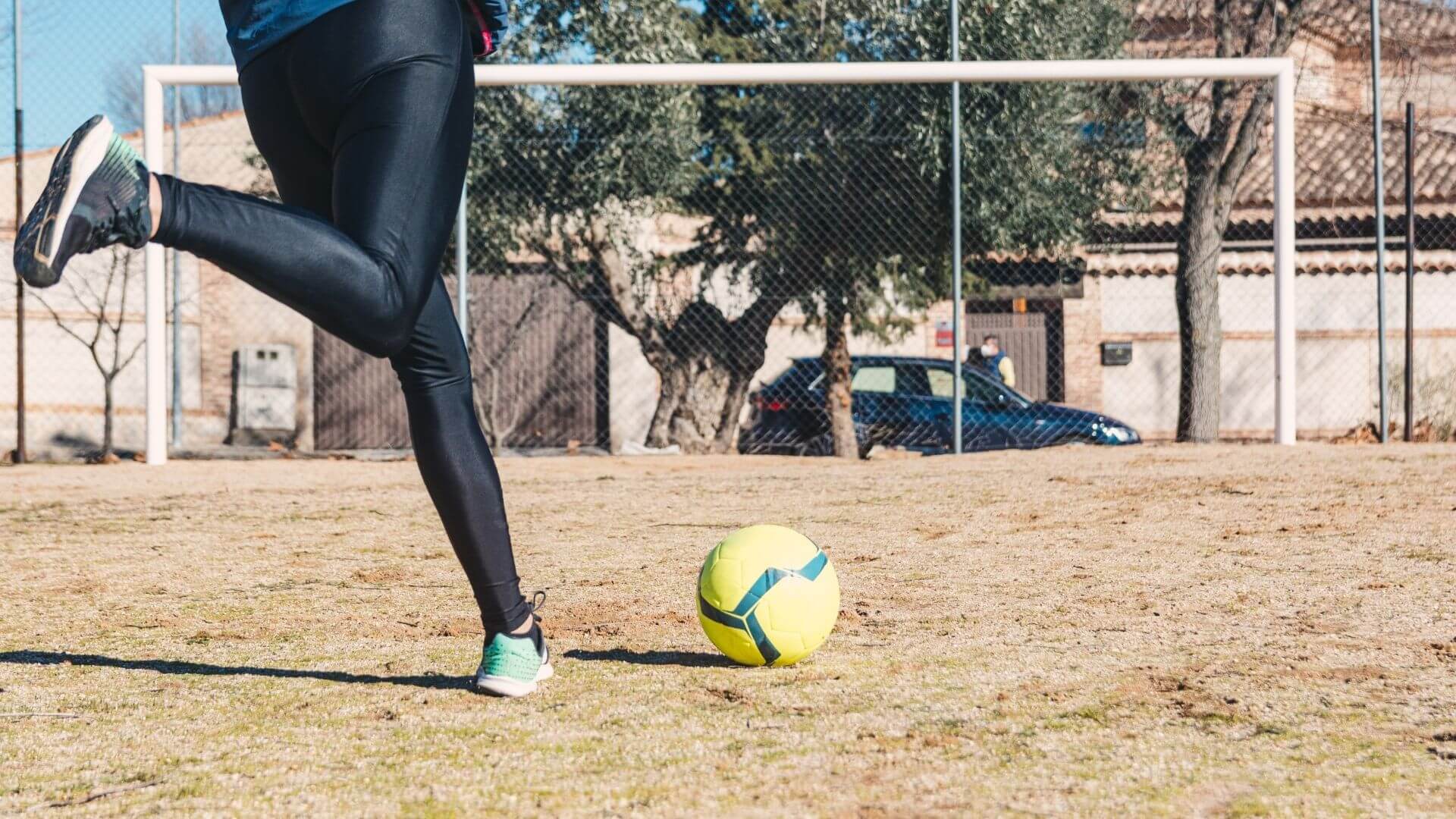Gaining an Edge: Positive Self-Talk Toolkit
Welcome to Gaining an Edge. This series empowers Socceristas to own their growth and maximize their potential by expanding mental performance skills, reframing limiting beliefs, and uncovering authentic drive.
In the past edition, we started talking about self-talk and how harmful and self-critical thoughts can completely derail your game. This time we will talk about how to combat those self-defeating mentalities by replacing them with good and useful thoughts on the soccer field.
Why self-talk is important
Self-talk is critical because it has the power to directly impact your performance in the present moment–for good or bad. Negative self-talk hurts how you are playing right now. Good, useful, and constructive self-talk positively impacts how you are playing right now.
Whether that self-talk is negative or positive is actually something that is within your control. Your body follows the dominant thought in your head, and if that thought is self-defeating, you can see how that wouldn’t work in your favor. Self-talk is a very powerful tool that, left to its own devices, will work against you, but if you harness its power for good, you can completely change your game.
4 types of helpful self-talk to replace self-defeating thoughts
Our brain has a negative bias, so it automatically goes to negative thoughts. If we want to help ourselves on the soccer field and stop being our own worst enemy, it’s up to us to work to consciously replace those negative thoughts with something more useful. Something positive. Here are four examples of different types of self-talk that are useful for soccer players:
Positive self-talk type 1: Motivational self-talk
Motivational self-talk is typically thought of when ‘positive self-talk’ is mentioned. Motivational self-talk is something Socceristas can use to boost confidence and psych themselves up. It’s words of encouragement to bolster one’s belief in themselves and get them prepped for the moment.
Motivational self-talk examples include: I am prepared, I am ready, I’ve got this, let’s go! Essentially any reminder to yourself that you are equipped to handle this moment. Mantras or affirmations are part of this as well–anything you put on repeat to help you regulate your emotions under pressure and keep your mind focused and composed to keep the doubt at bay.
Positive self-talk type 2: Self-compassion
Self-compassion is the second type of self-talk you can use to improve your mentality. Unfortunately, self-compassion doesn’t get talked about much in the soccer world. Still, it’s important and not to be underestimated because it is EXACTLY what players need to combat their inner critic and build resiliency skills.
Here’s an example: if you are facing a challenge or something difficult, you’ll eventually get past it, true. But will you move past it more quickly by beating yourself up and telling yourself how terrible you are? Or by acknowledging the difficulty and giving yourself the kindness and encouragement you need to push through?
This is self-compassion, and this is how you build resiliency.
Using self-compassion doesn’t mean you are weak, and it doesn’t mean you have to be overly nice to yourself. It simply means you express understanding of the difficulty of the situation, and you don’t let your inner critic run away with things. You can be self-compassionate and still be a FIERCE competitor. You can be kind to yourself while still holding yourself accountable to improvement.
Positive self-talk type 3: Neutral thinking
The concept of neutral thinking comes from mental coach Trevor Moawad. Moawad describes neutral thinking as “a high-performance strategy that emphasizes judgment-free thinking, especially in crises and pressure situations.”
This article by Soccer Resilience describes it quite well: “put simply, it means accepting that when something good or bad happens, it happens. You accept the event or situation for what it is and then decide to move forward.”
Neutral thinking is all about focusing on the process. Neutral thinking is helpful in high-pressure situations because if you can take out the negative and positive and neutrally identify the TRUTH of the moment. You can more quickly and easily solve the problem and execute it to the best of your ability with a level head.
Positive self-talk type 4: Instructional self-talk
Lastly, we come to instructional self-talk. Instructional self-talk is the most helpful type of self-talk on the field. Instructional self-talk is less about if you ‘feel’ ready or confident but more about DOING.
Instructional self-talk is short, specific phrases to help direct your attention to the task at hand. It’s things you can do, actions you can take.
Instructional self-talk is also useful in that it keeps you from overthinking by taking your attention away from self-defeating thoughts and instead focusing on specific details of how to execute at this moment.
Here are examples of instructional self-talk that a center defensive midfielder could use on the field:
Defending: get behind the ball, delay forward progression, step, close the space
Attacking: take space, break lines, check the flanks, look for space
How to start using these types of self-talk
To make the change away from negative, self-defeating thoughts and become a player with good, useful, and constructive self-talk, you need two things:
1 – The self-awareness to see that the negative self-talk and self-defeating mentalities are present and
2 – A genuine growth-minded desire to want to change things and be a student of the game
Changing from negative self-talk to positive self-talk is hard and takes time, patience and persistence. Self-awareness is necessary here because you cannot change something without clearly and objectively seeing it first and KNOWING that it needs to change.
Once you see and truly understand the impact of the negative self-talk on your game, you can create some drive to dig in and figure out how to get the heck out of it.
A heads up – positive self-talk will not come naturally when you start working on this. You’ll have to force yourself to do it for a while until it becomes a habit. That is why a genuine desire to change is necessary because you will have to have a great deal of persistence to pursue it.
Gaining an Edge
‘Gaining an Edge’ is a 10-part series from Expand Your Game’sMindset Mastery Academy, a transformative 1-on-1 mental skills mentorship experience for female soccer players. It is created by Jenn Ireland, Mental Skills Coach + Founder of Expand Your Game
Featured image via Adobe Stock Images
_
GIRLS SOCCER NETWORK: YOUR SOURCE FOR GIRLS SOCCER NEWS











